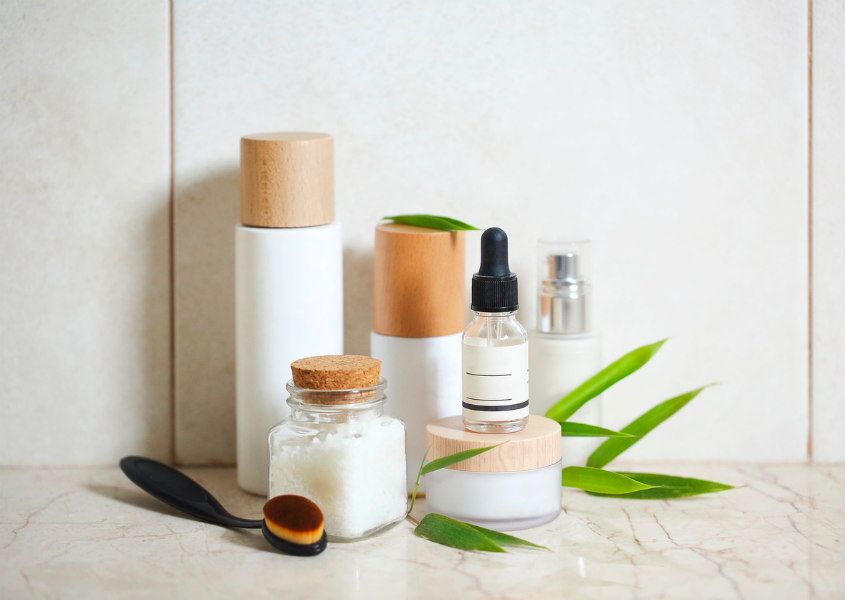
Taking care of your skin is important not only for aesthetic reasons but also for overall health. Healthy skin acts as a barrier to protect the body from harmful elements like bacteria, UV rays, and pollutants. Here’s some general skin care advice, along with tips for specific concerns:
1. Basic Skin Care Routine:
Cleansing:
– *Why it’s important*: Cleansing removes dirt, oil, and makeup, which can clog pores and cause breakouts or irritation.
– *How to do it*: Use a gentle, non-stripping cleanser suited for your skin type (dry, oily, or combination). Cleanse twice a day — morning and night — to keep your skin clear and balanced.
– *Tip*: Avoid using hot water, as it can dry out the skin. Lukewarm water is ideal.
Exfoliating:
– *Why it’s important*: Exfoliating removes dead skin cells, helping to improve skin texture and promote cell turnover.
– *How to do it*: Exfoliate 1-3 times a week, depending on your skin type. Avoid harsh physical scrubs, as they can be abrasive. Instead, opt for gentle chemical exfoliants with ingredients like AHAs (alpha hydroxy acids) or BHAs (beta hydroxy acids).
– *Tip*: Don’t over-exfoliate. It can lead to skin irritation, sensitivity, or a disrupted skin barrier.
Moisturizing:
– *Why it’s important*: Moisturizing helps keep the skin hydrated and balanced. Even oily skin needs moisture, as dehydration can trigger excess oil production.
– *How to do it*: Apply a moisturizer suited for your skin type after cleansing. For dry skin, use richer, thicker moisturizers. For oily or acne-prone skin, go for lightweight, oil-free formulas.
– *Tip*: Look for ingredients like hyaluronic acid (for hydration) and ceramides (for barrier repair).
Sun Protection:
– *Why it’s important*: Sunscreen protects your skin from harmful UV rays that cause premature aging, sunburn, and increase the risk of skin cancer.
– *How to do it*: Apply a broad-spectrum sunscreen with SPF 30 or higher every morning, even if you’re staying indoors, as UV rays can penetrate windows.
– *Tip*: Reapply sunscreen every two hours if you’re outdoors or sweating. Don’t forget areas like the ears, neck, and hands.
2. Skin Care Tips for Specific Concerns:
Acne-Prone Skin:
– *What to do*:
– Use non-comedogenic products (those that won’t clog pores).
– Look for treatments with benzoyl peroxide or salicylic acid, which help reduce acne-causing bacteria and prevent clogged pores.
– Avoid touching your face with dirty hands, as this can transfer bacteria and oils to your skin.
– *What to avoid*:
– Harsh scrubbing, as it can irritate the skin and make acne worse.
– Overuse of products containing alcohol, which can dry out the skin and worsen breakouts.
Dry Skin:
– *What to do*:
– Choose a thicker, richer moisturizer, especially if you live in dry climates or during winter.
– Consider using hydrating serums with ingredients like hyaluronic acid, glycerin, or aloe vera.
– Take shorter, lukewarm showers and avoid hot water, which can strip the skin of its natural oils.
– *What to avoid*:
– Harsh soaps or cleansers that can strip moisture from the skin.
– Long exposure to hot water, as it can worsen dryness.
Oily Skin:
– *What to do*:
– Use a gel-based or water-based cleanser to remove excess oil without drying out the skin.
– Consider using products containing niacinamide, which can help regulate oil production.
– Use lightweight, oil-free moisturizers to maintain hydration without clogging pores.
– *What to avoid*:
– Over-cleansing, which can strip the skin and cause it to produce even more oil.
– Heavy, greasy moisturizers that can clog pores.
Sensitive Skin:
– *What to do*:
– Opt for fragrance-free, gentle skincare products.
– Consider using soothing ingredients like aloe vera, chamomile, or calendula.
– Always patch test new products to avoid reactions.
– *What to avoid*:
– Harsh exfoliants or abrasive scrubs.
– Strong acids or retinoids that can cause irritation.
Hyperpigmentation (Dark Spots):
– *What to do*:
– Use products containing vitamin C, which can help lighten dark spots and even skin tone.
– Consider exfoliating with AHAs or BHAs to promote cell turnover and fade dark spots over time.
– Always apply sunscreen, as UV rays can worsen hyperpigmentation.
– *What to avoid*:
– Picking at blemishes, as this can cause scarring and worsen pigmentation.
– Prolonged sun exposure without protection.
3. Healthy Habits for Healthy Skin:
Hydration:
– Drink plenty of water throughout the day to keep your skin hydrated from the inside out.
– Avoid sugary beverages, which can promote acne and skin inflammation.
Healthy Diet:
– *Include*: Foods rich in antioxidants (like berries, leafy greens, and nuts), omega-3 fatty acids (like salmon and chia seeds), and vitamin C (like citrus fruits and peppers) to support skin health.
– *Avoid*: Excessive sugar, processed foods, and dairy (for some people, dairy can trigger acne or skin irritation).
Sleep:
– Aim for 7-9 hours of quality sleep. Skin repairs itself during sleep, so sufficient rest is key to maintaining a healthy complexion.
– *Tip*: Try sleeping on a clean pillowcase to reduce the risk of transferring oils and dirt to your skin.
Stress Management:
– Chronic stress can trigger skin issues like acne, eczema, or rosacea. Try managing stress through relaxation techniques like meditation, yoga, or deep breathing.
– Exercise regularly to help reduce stress and improve circulation, which benefits skin health.
Don’t Smoke:
– Smoking accelerates aging, causing wrinkles, dullness, and loss of skin elasticity. It also reduces blood flow to the skin, depriving it of oxygen and essential nutrients.
Avoid Touching Your Face:
– Your hands come into contact with a lot of bacteria and dirt throughout the day, so avoid touching your face to prevent transferring these elements to your skin, which can cause breakouts or irritation.
4. Special Skin Care Products to Consider:
– *Cleansers*: Gentle foaming cleansers or cream-based cleansers are great for most skin types. Look for one that matches your skin type (hydrating for dry skin, oil-control for oily skin).
– *Toners*: Toners with soothing ingredients like witch hazel or chamomile can help balance the skin’s pH after cleansing.
– *Serums*: Vitamin C serums (for brightening), retinoids (for anti-aging), or hyaluronic acid serums (for hydration) can provide targeted treatments.
– *Moisturizers*: Find one that’s designed for your skin type; a thicker cream for dry skin and a lighter gel moisturizer for oily skin.
– *Sunscreen*: Broad-spectrum SPF 30 or higher is essential. Look for non-comedogenic formulas if you’re prone to acne.
